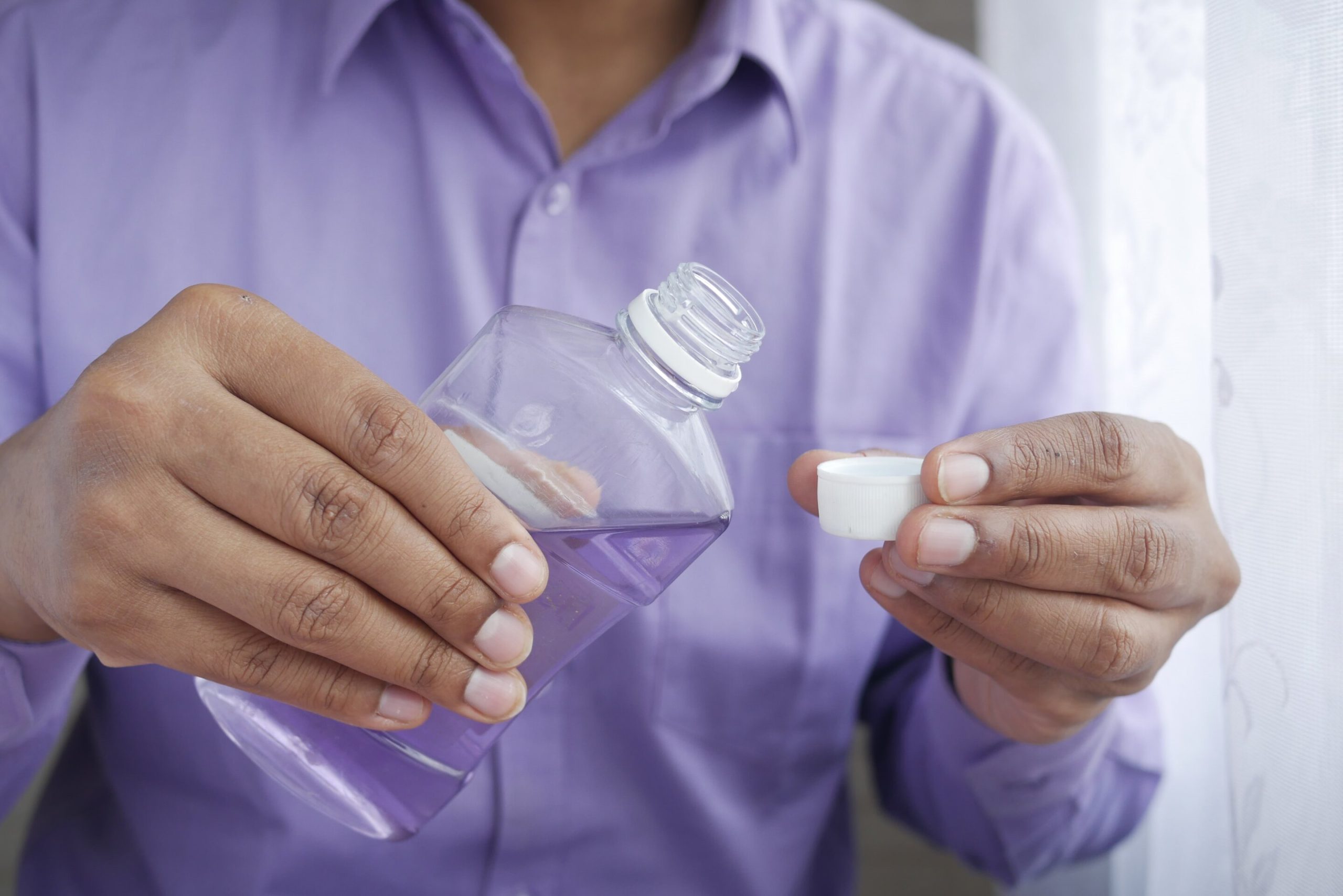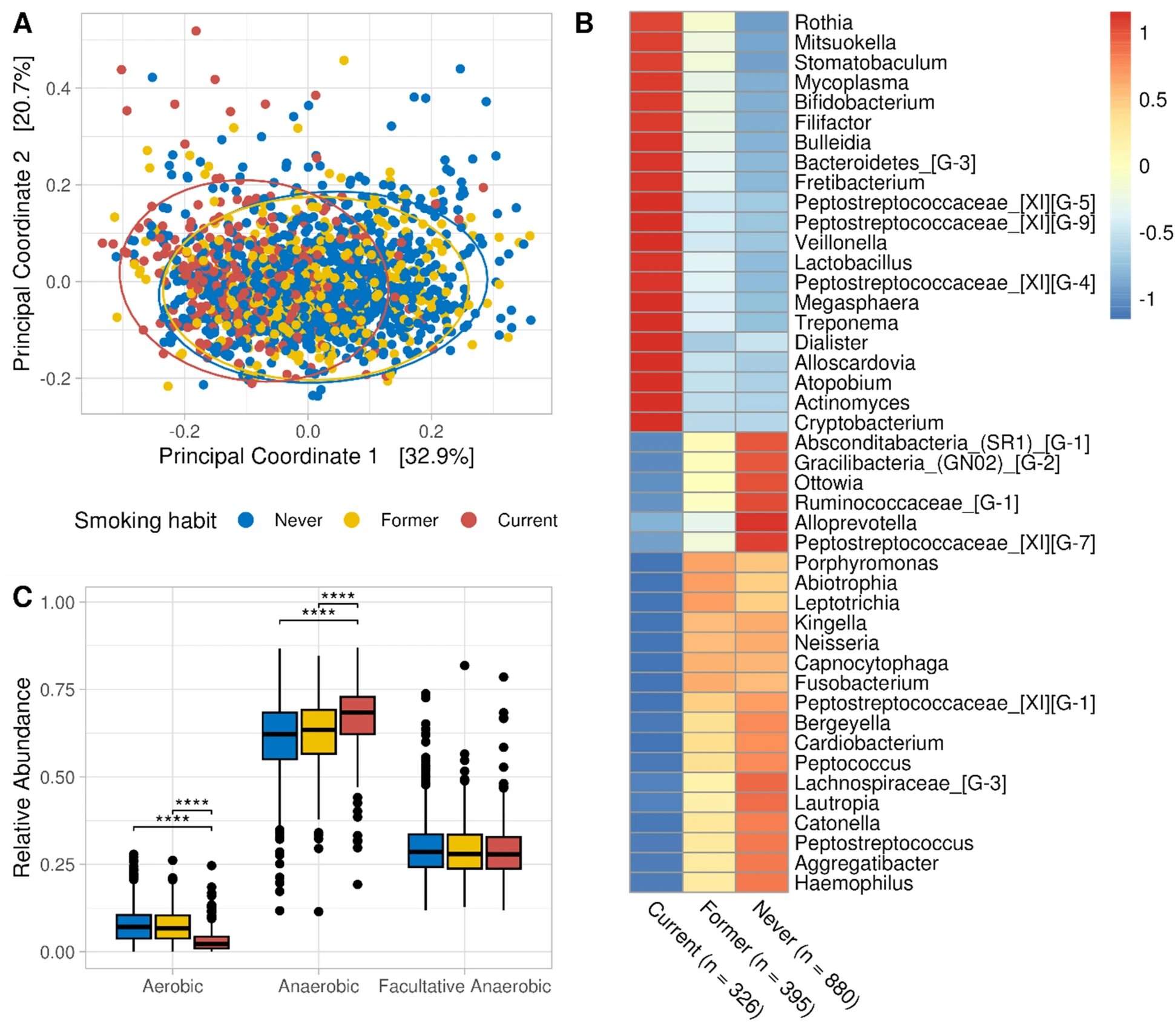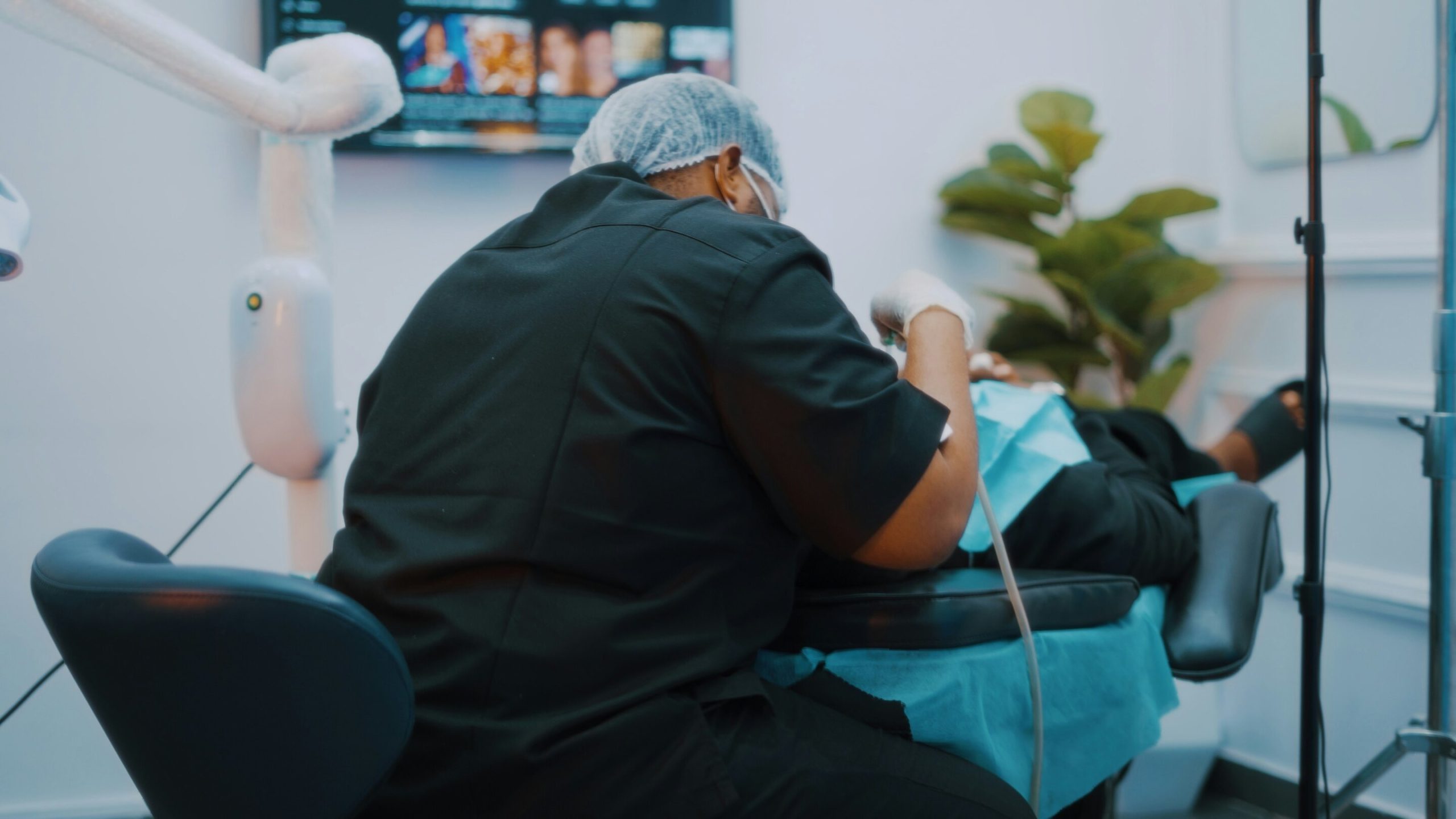
The oral microbiome is the community of bacteria that live in the mouth. It helps us digest our food and keep our mouth healthy. Changes to the composition of the oral microbiome have been linked to periodontal diseases and some cancers.
New research, published in Journal of Medical Microbiology is a follow-up to a larger study investigating the use of mouthwash as a method to reduce the transmission of sexually transmitted diseases in men who have sex with men. Researchers wanted to explore further and investigate whether the mouthwash used had an impact on the oral microbiome of the patients.
Researchers from the Institute of Tropical Medicine in Antwerp, Belgium found that two species of opportunistic bacteria were significantly more abundant in the mouth after three months of daily use of the alcohol-based mouthwash, Fusobacterium nucleatum and Streptococcus anginosus. These two bacteria have been previously linked to gum disease, esophageal and colorectal cancers. Researchers also saw a decrease in a group of bacteria called Actinobacteria, which are crucial contributors to the regulation of blood pressure.
Dr. Jolein Laumen, first author of the study and researcher at ITM’s Unit of Sexually Transmitted Infections, said, “Alcohol-based mouthwashes are widely available. The public may use them daily to tackle bad breath or prevent periodontitis, but they should be aware of the potential implications. Ideally, long-term usage should be guided by health care professionals.”
Professor Chris Kenyon, an author of the study and Head of the Unit of Sexually Transmitted Infections, said, “Up to half of men who have sex with men report using mouthwash for oral hygiene. This study adds to the literature that this is likely having an adverse effect on their oral microbiomes.”
While the results link the daily use of alcohol-based mouthwash to alterations of the oral microbiome, researchers are reluctant to draw substantial conclusions from the data. Information on dietary habits and smoking was not collected, so researchers were unable to account for this in the analysis. As the small sample group was taken from the initial study, the results of this study may also not be representative of the population as a whole. Further research should examine how the detected changes affect clinical outcomes in larger and more representative sample groups.
More information:
The effect of daily usage of Listerine Cool Mint mouthwash on the oropharyngeal microbiome: a substudy of the PReGo trial, Journal of Medical Microbiology (2024). DOI: 10.1099/jmm.0.001830
Provided by
Microbiology Society
Citation:
Commonly used alcohol-based mouthwash brand may disrupt the balance of your oral microbiome, scientists say (2024, June 4)
retrieved 13 September 2024
from https://medicalxpress.com/news/2024-06-commonly-alcohol-based-mouthwash-brand.html
This document is subject to copyright. Apart from any fair dealing for the purpose of private study or research, no
part may be reproduced without the written permission. The content is provided for information purposes only.




